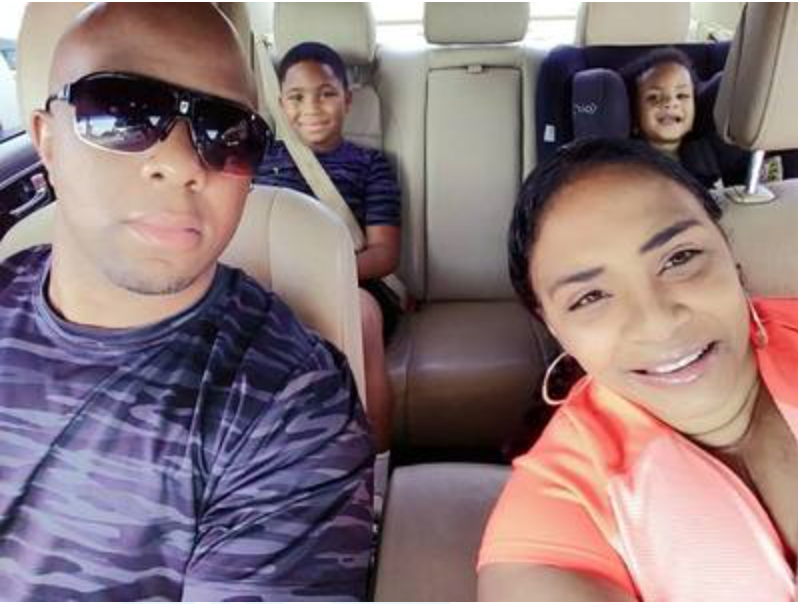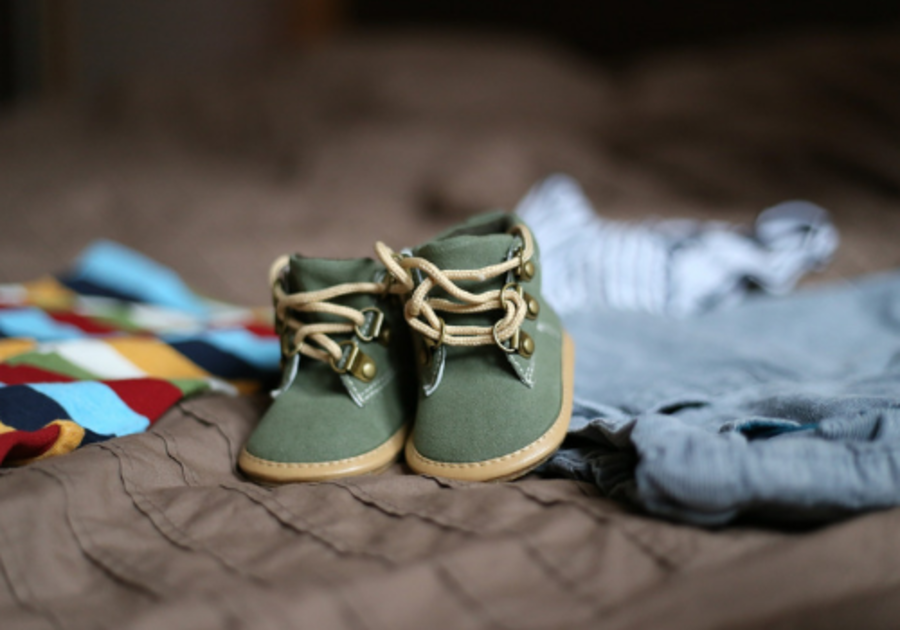Pregnancy and Infant Loss Remembrance Day is Oct. 15. Kristen Wright-Matthews wrote about the experience of losing her daughter, and offers hope to other families who have experienced similar loss.
The pain from losing a child during pregnancy can be exhausting, unyielding, and feel like it's never going to end.
I know.
Our nightmare began on a Friday evening. I was a little more than halfway through my pregnancy, which up until then had been uneventful.
But that night I felt terrible and my husband took me to the ER with symptoms of what we thought was a stomach virus. They sent me back home again with medication for nausea.
However, the symptoms only grew worse. I went back to the ER the next day. This time they gave me an antibiotic.
The next day I began spotting. In a phone call, my doctor told me to stay off my feet and to come into his office first thing Monday. When I arrived, I was rushed into an examination.
I had begun dilating.
They took me to the hospital in an ambulance.
By then my world was spinning. Every word spoken to me sounded like mumbling. I felt numb.
They tried to save my baby. But on my second day in the hospital, I delivered. Karsen Angelica was born June 11, 2013. She was only 21 weeks — too young to survive outside of my womb.
Adding to the gut-wrenching emotion of the ordeal for my husband and I was the idea of telling our son, C.J., then 5, that his little sister wouldn't be coming home. He'd been anxiously waiting for her arrival.
For weeks after Karsen's birth, I would hear CJ's heartbroken crying. After an especially difficult night, I talked to him about how he felt. It turned out the emotions he was feeling were loneliness and fear. He wanted his sister. He wondered where she was. He was afraid she was alone.
Needless to say, we both needed healing and comfort. We found different ways of coping, that — while they didn't take away our grief — gave us a way to turn our sorrow in a positive direction.
If your family has experienced a loss like ours, here are seven things to remember and consider:
1. Give yourself time to heal.
After a loss, you might experience many different emotions and feelings — from shock to anger, to guilt to jealousy, and of course, sadness. These emotions — and others — are all normal reactions. Don't rush yourself through them or beat yourself up for having them. For us, keeping our baby's memory alive through service to others and family rituals help us cope. We also found that time is the true healer.
2. Create rituals in remembrance of your baby.
These can be held on a special day or just because you're thinking of them. In our family, we celebrate Karsen on her birthday each year. And anytime we miss her, no matter what day or time, we light a special candle in her honor. This helps us to keep her memory close.
3. Join a support group of other families who have experienced loss.
Your hospital should be able to provide you with information about groups in your area. Go to at least one meeting — hearing from others who have gone through pregnancy loss helps you realize you're not alone in your grief.
4. Turn to loved ones for support.
Take any help that is offered — whether it's an afternoon playdate for your child or a meal. Your friends and family want to support you however they can. Let them, and don't be afraid to ask for support if you need it.
5. Share your feelings.
Voicing your frustration and pain — or whatever emotions or memories you feel — will help in the healing process. You might feel isolated and alone, but remember your partner is experiencing pain too. Talk to each other and comfort each other. But also realize that your partner might mourn differently than you, and might react differently than you do. Talking to a professional grief counselor — either alone or as a family — can be an invaluable help as you forge a new path forward.
6. Take care of yourself.
Eat healthy foods. Stay active. Get sleep. Take a shower. Taking care of yourself will help you restore energy, improve your overall well-being, and help you return to a routine. Meditation was a great help to me. While the idea of meditation means different things to different people, to me it means sitting quietly with my eyes closed. Other times it means reciting a single word to center myself. When the thoughts inside were too painful and loud, I meditated, retreating within, breathing and truly feeling my emotions.
7. Find a way for your family to honor your baby's memory.
My son and I came up with our idea for Blankies 4 My Buddies, which provides blankets to sick and displaced children, to honor Karsen's memory. For my son, who felt the loss of his sister so sharply , Blankies 4 My Buddies has been a way to redirect feelings of helplessness and hopelessness into pride because he believes that his sister is watching over him in approval and gratitude.
, Blankies 4 My Buddies has been a way to redirect feelings of helplessness and hopelessness into pride because he believes that his sister is watching over him in approval and gratitude.
The difficult loss of a baby during pregnancy is something tens of thousands of families in the United States face each year. Luckily, many women who have lost a child during pregnancy can go on to have successful pregnancies again in the future. I'm lucky enough to be one of those women.



